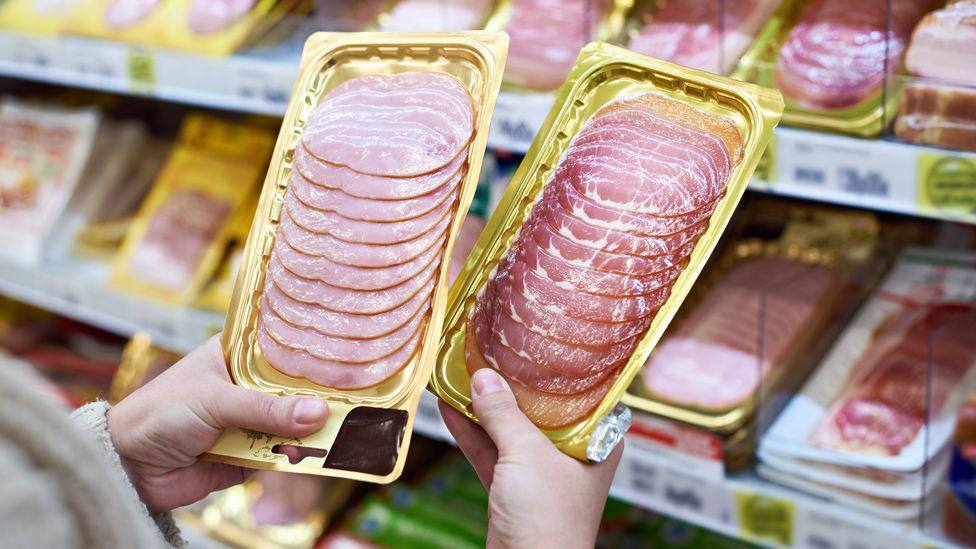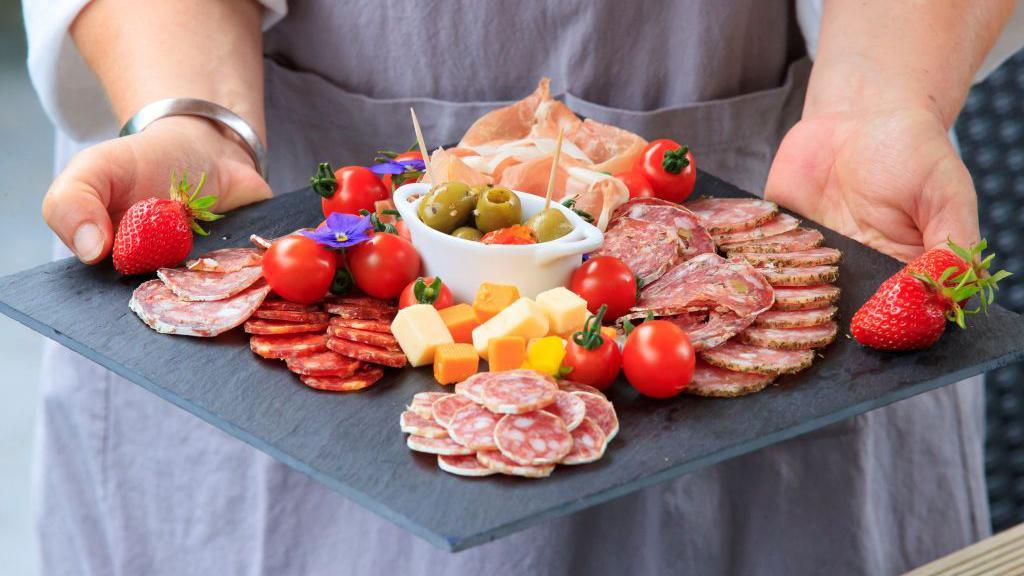UK ban on EU cheese and meat: What it means for you

- Published
The UK government has temporarily banned people from bringing cheese and some meats from the European Union (EU) into the country to stop the spread of foot and mouth disease.
But what does that actually mean in practice - and should you be concerned?
What has been banned?
Pork, beef, lamb, mutton, goat, venison and any other products made from these meats - such as sausages - from the EU have been banned. It also applies to pet food.
In addition, milk and dairy products - like butter, cheese and yoghurt - from the EU have also been prohibited.
It covers items such as sandwiches and cured meats as well as raw meats and milk "regardless of whether it is packed or packaged or whether it has been bought at duty free".
However, there are exceptions such as chicken, duck, goose and any other products made from these.
Who does the ban apply to?
The measure is only directed at people arriving in Great Britain - as in, England, Wales or Scotland - from the EU.
It does not apply to Northern Ireland, which has its own measures in place to contain foot and mouth disease., external
The ban covers anyone travelling by any mode of transport - whether that's by plane, train, bus or by car.
But it will not be imposed on those arriving to Great Britain from Northern Ireland, Jersey, Guernsey, or the Isle of Man.
Are commercially imported cheeses and meats banned too?
The ban only applies to travellers bringing in items personally - not commercial importers such as farmers or shops.
The reason, according to the UK government, external, is that commercial meat and cheese imports face higher standards than individuals are subjected to.
They must go through heat treatment, which is meant to kill germs, and come with health certificates signed by vets.
How can animals get foot and mouth disease from meat and dairy products?
The disease typically spreads between animals through direct contact. But they can also catch it by eating contaminated meat or dairy products.
Any products of animal origin, like meat and dairy, could be contaminated with foot and mouth disease.
Even if they are for human consumption, if they are thrown away in a way that could come into contact with foraging wildlife or domestic livestock, that presents a risk.
Should I be worried?
Foot and mouth disease is harmless to humans and there are no cases in the UK - but it is highly contagious for animals.
It affects cattle, sheep, pigs and, according to the government, "other cloven-hoofed animals such as wild boar, deer, llamas and alpacas".
Animals that catch it typically come down with a high temperature before developing blisters, usually around the mouth or feet. It can make animals lame and, for the very young, result in fatalities.
How long will the ban last?
The Department for Environment, Food, and Rural Affairs introduced the measure on Saturday, 12 April and did not give an end date.
The BBC understands the ban will stay in place until the government believes there is no significant risk from travellers bringing banned meat and dairy into Great Britain.
Why didn't I know about this?
The government put out a release last Friday ahead of the ban coming into force on Saturday.
It told border control and airlines to make passengers aware of the rules and has rolled out a digital and social media campaign.
Eurostar has also been sending out emails to passengers letting them know about the UK rules.
However, many people who have travelled from the EU to Great Britain since the weekend told the BBC they were unaware of the measure and were not told - with no signs in the airport and no checks carried out.
Anyone travelling should follow the rules.
The government says items could be seized and destroyed at the border and, in serious cases, offenders could be fined up to £5,000 in England.
Can I take meat and milk products from the UK into the EU?
No, travellers are not normally allowed to bring meat and milk products into the EU, external from the UK for personal use.
This has nothing to do with the latest announcement though - it has been the case since Brexit, with the UK facing the same rules as every other non-EU country.
But there is an exemption for powdered baby milk, baby food, or special foods for humans or animals where there is a medical need.
Related topics
- Published17 April
